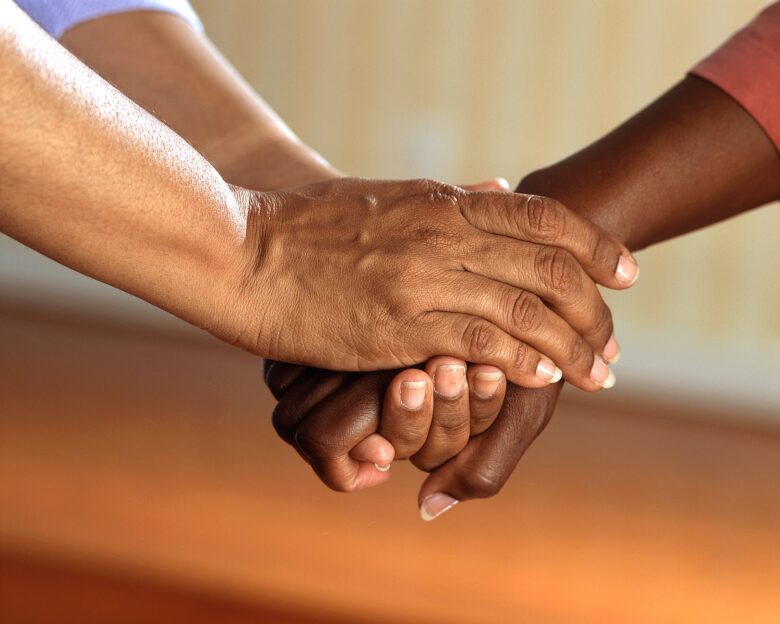When someone close to us is addicted to various substances or other things, like video games, it is a very serious matter. This problem must be addressed with the utmost seriousness and commitment. It is something that can completely destroy the life of that person, and thus, to a significant extent, have a bad effect on our lives. Pay attention to people close to you, so that the first steps of addiction do not go unnoticed, and then it is very difficult for that person to be cured. This is a mental illness and should be approached that way. It mentally destroys a person, but also physically and therefore must be treated in different ways. With professional help that will probably be necessary, we will give you advice on how you can help the addict.
Recognize the signs

Before you can help someone, it is very important to recognize the signs. For some, it is easily visible, but for others, it is not. This is mainly influenced by the duration of the addiction and whether you see that person every day or once every couple of months.
Also, addictions are different. An alcoholic does not have the same “symptoms” as a gambler. Some find it easier to hide, and some find it harder. You may miss someone’s changes in behavior and habits because you don’t pay enough attention or see him too infrequently to be able to notice it. Some of the most common changes you may notice are problems in the workplace, irresponsibility that was not the case before, then grumpiness or anger when you mention the addiction, alienation from other people, and even violent outbursts and many other changes in behavior. As for physical changes, they are usually less noticeable, at least initially. And it also depends on the substance or causes such as gambling, etc.
Tips for helping
1. Learn as much as you can about the problem

It is very likely that you have never encountered this problem before and that it is not familiar to you at all. That is why it is impossible to help that person until you research the topic as much as possible. Read as many reputable sites as you can where you can learn about addictions. Also, talk to people who have had similar experiences, and even go to support groups, to talk to people who have struggled with the same problem. You need to know what you are dealing with.
2. Have realistic expectations

In order to be as helpful as possible, it is important that you have realistic expectations, so as not to be disappointed at the beginning and give up. Expect various types of obstacles along the way. There will be setbacks as well as relapses, but don’t lose hope. You have to believe in a positive outcome and that is the only way you can help. If you think he will be over that problem in a month, you are wrong. It is a long process and gives time for positive changes to happen. According to experts from addictionsolutionsvictoria.org.au recovery requires commitment and tenacity. And who knows that better than those who encounter it every day?
3. Include professional help

To be clear right away, you won’t be able to just cure it by yourself. You don’t have enough knowledge for something like that, and neither the time nor the energy. It’s very time and energy-consuming, and you have a life nonetheless, even if it’s your child, not someone less close to you. That is why you need the help of professionals, who encounter similar cases every day. You’ll probably have trouble convincing the addict to involve someone else in that fight, but you have to do it. There are different types of treatment, some require a stay in certain institutions, while there are methods of treatment from home. These are methods that are much easier for an addict to accept.
4. Take care of your mental health

Also, these same professionals are there to help you get through all this easier. Don’t neglect the importance of maintaining your mental health as well. They will advise you on how best to behave in this situation, and will also help you deal with all hardships more easily. It can happen that by helping someone else, you endanger your health, both physically and mentally. You absolutely must not allow this to happen, because it will be bad both for you and the person you are helping.
5. Be supportive, not judgmental

This is the biggest fight in that person’s life and that’s why you shouldn’t judge them. Although it is mostly their fault, you will not achieve anything by condemning. Whoever is fighting against such an enemy already feels bad enough because he is in that situation and that is why he needs support. Only support can help overcome the sense of worthlessness that may have led to this vice in the first place. Your condemnatory attitude can only lead to a relapse. So be supportive, praise him for every good move he made, and for every day he spent without his addiction.
6. Don’t be too soft either

You also have to set boundaries, because if you are too lenient, your actions can be counterproductive. If a person does something that is absolutely unacceptable, let him or her knows how wrong he was and that he disappointed you. It is important that he knows that he still has your support, but that if he continues with harmful behavior, you will not be able to fight for him forever. Small mistakes are allowed, but be very clear what you do not want to tolerate. You have a right to it because of everything you do for him, and it is also beneficial for the addict.
7. Don’t forget the love

Remember that this is the person you love and remember all the reasons why you love him, even though it may now be difficult to recognize that he is the same person he once was. Keep in mind, at all times, that if he manages to overcome the addiction, that the person with all those positive qualities you loved will return. Also, don’t use love as a weapon to attack whenever you are disappointed.
Conclusion
Always stay positive. Know that there is hope for everyone and that even the most difficult cases are saved when there has been enough support from the people closest to them.

